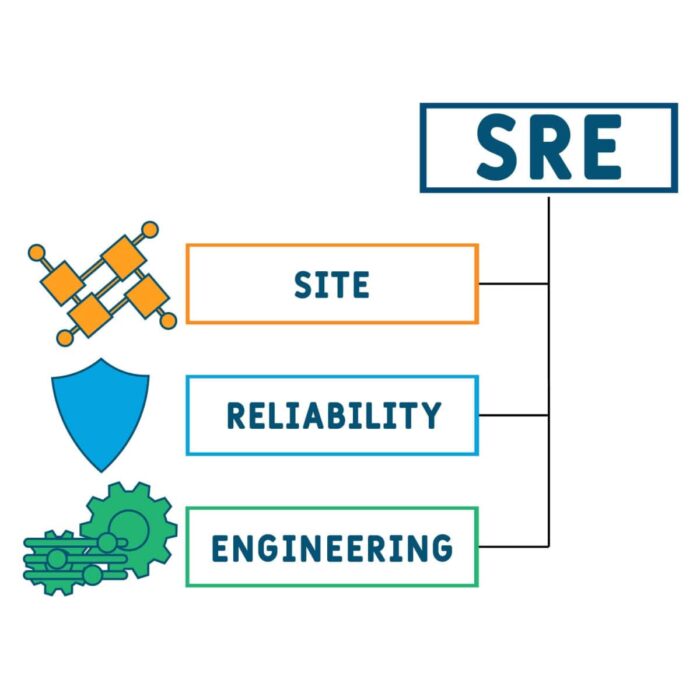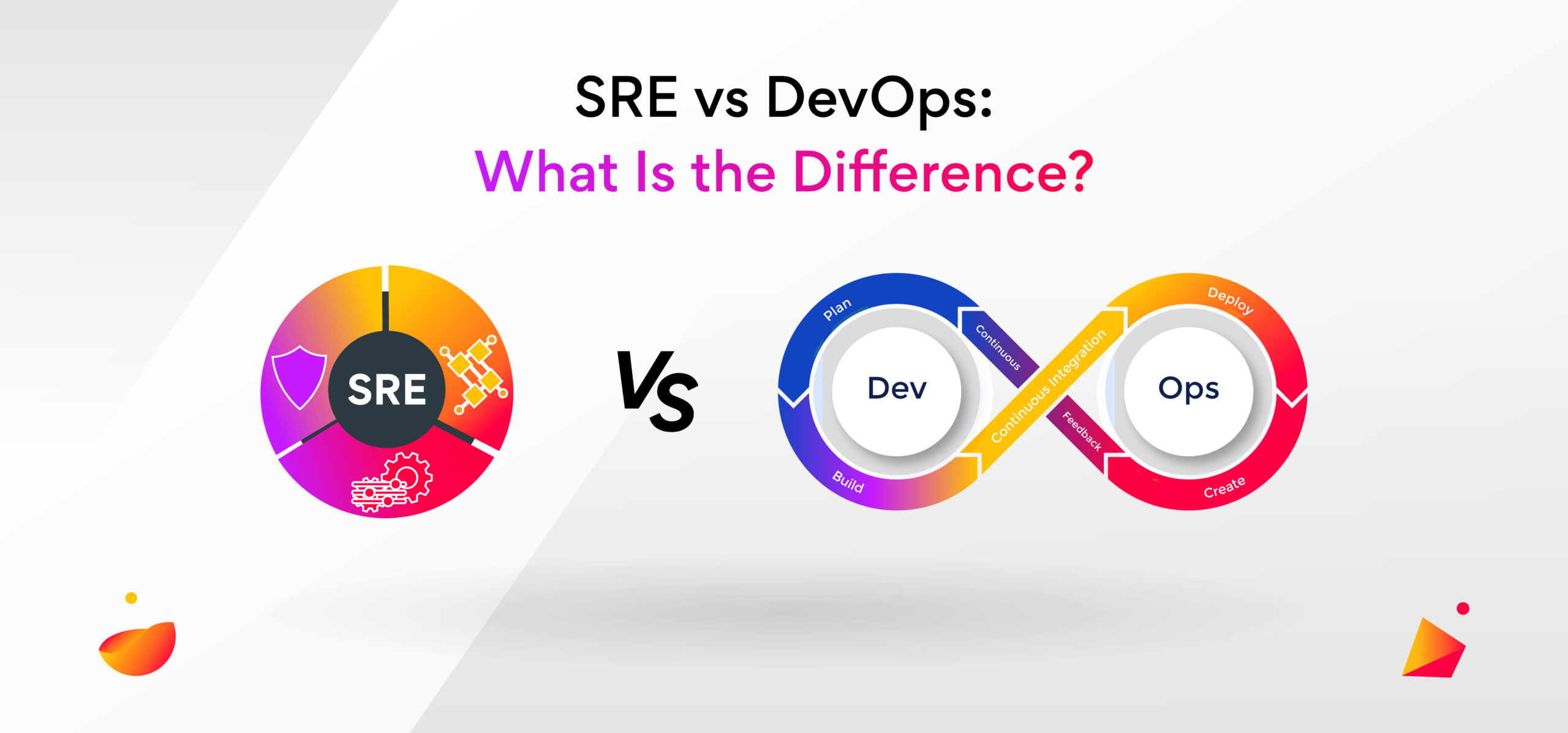SRE vs DevOps: What Is the Difference?
What to choose in SRE vs DevOps? Is SRE only for the cloud? What is the role of DevOps? Can SRE and DevOps co-exist? Does SRE require coding? Is DevOps a good career path? Are SRE and DevOps the same?
This post will help you answer all these questions.
Organizations can choose between SRE and DevOps for software development, release, and production. A detailed comparison between these two approaches can help organizations make the best choice.
What is DevOps?
DevOps is a combination of development and operations. DevOps’s goal is to ensure that the team responsible for coding is also maintaining the code in production.
Continuous delivery allows developers to verify application updates before deploying software. Apart from continuous delivery, DevOps includes software development, release, testing, integration, configuration management, and real-time monitoring.

DevOps combines software development and operations.
What is SRE?
SRE stands for site reliability engineering. SRE is a collaboration between software engineering and system operations. SRE’s responsibilities include identifying and preventing the problems that can cause downtime.

SRE combines system operations with software engineering.
SRE deals with software development parameters like speed, quality, design, agility, and innovation. Also, SRE handles operational requirements like security, performance, availability, and maintainability.
Comparison between SRE and DevOps
- SRE vs DevOps: Organization
Most organizations have many departments working on the same product. However, the product can fall apart if these departments do not work together.
DevOps helps remove team members’ disagreements and brings them together under a shared vision. DevOps’s goal is to enable each department to make optimum use of resources.
SREs, on the other hand, do not target silos directly but push everyone to discuss. By doing this, they share the ownership of a product with everyone working on it across the company. - SRE vs DevOps: Fail testing
Companies know that software will fail at some point if not tested regularly. DevOps uses automated testing to find mistakes and mitigate risks. By doing this, DevOps ensures that the teams don’t repeat mistakes.
SREs use two methods to check failure: service level indicators and service level objectives. SLIs measure failures per request over time, and SLOs represent the success percentage of SLIs. - SRE vs DevOps: Progress measurement
DevOps uses four metrics to measure performance. These include deployment frequency, time to restore service, lead time for changes, and change failure rate.
SREs use four signals, namely traffic, latency, saturation, and errors to measure progress. Developers must take established benchmarks against each metric into account for measurement. - SRE vs DevOps: Team structure
SRE teams comprise site reliability engineers with prior experience in software development and operations.
DevOps teams can include several members like quality analysts, software developers, release managers, system administrators, product owners, and system reliability engineers, among others.
Related Post: 7 Reasons Kubernetes Is Important for DevOps - SRE vs DevOps: Tools
DevOps and SREs include similar tools that include containers, microservices, continuous integration, continuous deployment, infrastructure as code, resilience testing, and monitoring systems among others. - SRE vs DevOps: Focus
SRE’s focus is to create highly reliable and ultra-scalable applications. SRE’s responsibilities primarily center around ensuring and maintaining the reliability of the application over making quick changes.
On the other hand, DevOps focuses on creating production environments wherein developers have more control. DevOps’s goal is to set up CI/CD pipelines across all the stages of the product for agile development. - SRE vs DevOps: Implementation of change
DevOps employs small changes gradually instead of deploying large-scale changes to the software application. By doing this, DevOps applications face fewer bugs and consist of excellent review management.
SREs roll back early and often to make the product error-free. To implement changes, SREs validate updates with canary releases. Additionally, SREs responsibilities include balancing reliability with frequent updates. - SRE vs DevOps: Automation
SRE works to eliminate tedious tasks by identifying and removing tasks that take more than fifty percent of an engineer’s time. Also, SREs prepare specific codes for different operations and add the codes to a playbook.
DevOps automation practices create feedback loops between the operations and development teams. DevOps’s goal of automation is to push iterative updates faster to the applications in production.
Summary
SRE and DevOps are two sides of the same coin.
Organizations can use SRE or DevOps to ensure collaboration between operations and software development teams. However, companies should opt for DevOps if they want to bring the product to market fast and integrate updates during production. On the other hand, if companies require task automation on a large scale, they must opt for SREs.
If you are looking to hire DevOps or site reliability engineers, try Turing.
Turing allows companies to hire pre-vetted, Silicon Valley-caliber developers for 100+ skills in just 3-5 days! from a talent pool of 3 million developers.
FAQs
1. Does SRE require coding?
Yes, SRE’s require coding. Site reliability engineers look to improve the reliability of a system. This goal sometimes requires digging into the source code of a system, determining the issue, and often contributing a fix back to the code base
2.Is DevOps a good career path?
Yes, the demand for DevOps has grown 40-50 percent in the last five years.
3.Which language is the best for DevOps?
Python is the most popular language for DevOps as it offers a wide range of library modules to perform common tasks. Programming languages are used in the core development of DevOps systems. Hence, DevOps professionals require the knowledge of the right programming languages that can be used in these systems.
Tell us the skills you need and we'll find the best developer for you in days, not weeks.












